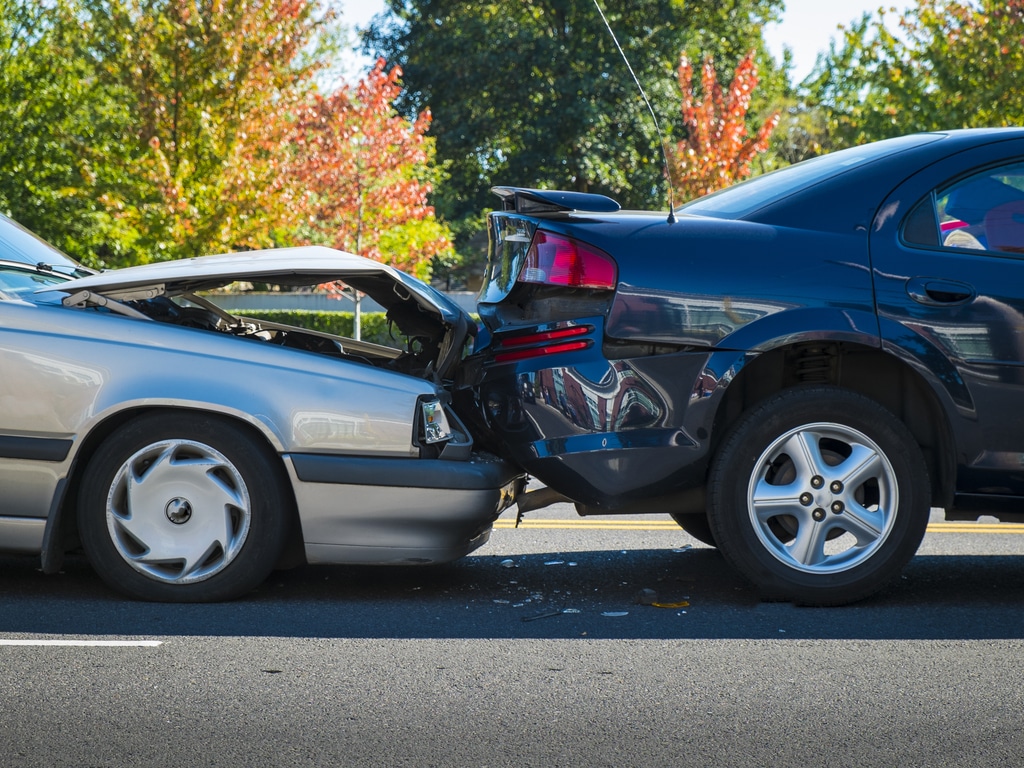
Car accidents can happen to anyone, anytime, anywhere. You could be driving home from work and find yourself involved in a wreck on the highway. Or you might be returning from a quick trip to the pharmacy and get hit by a car turning the corner. Whatever the case, most auto collisions unfortunately lead to some degree of injury, and in the worst case scenario, death.
In 2020, the state of Florida saw 341,399 car crashes. Sadly, 3,098 of these collisions were fatal, leading to 3,332 deaths. Even when not fatal, the injuries from a car accident can be so severe that your life feels like it’ll never return to normal.
Usually, a collision results in significant expenses, whether you survive a crash or lose a loved one. These include medical bills, funeral expenses, lost income, and other financial losses. So, what can you do?
That’s the purpose of filing claims and lawsuits—to try to get back to the way your life was prior to the accident. Essentially, to be made whole.
You can sue the at-fault party for compensation. But how much can someone sue for a car accident? Well, that depends. We’ll explain.
Table of Contents
- How Much Can a Victim Sue for After a Car Accident?
- Am I Only Entitled to My Medical Bills in a Car Accident Lawsuit?
- Can I Recover Non-Economic Damages?
- What if I Was Partially at Fault?
- What Is the Difference Between a Settlement and a Verdict?
- How Much Are Car Accident Claims for Emotional Distress?
- Are There Any Insurance Limits in Car Accident Lawsuits?
- Are You Still Vulnerable to a Lawsuit With Insurance?
- What Are the Most Common Reasons for a Car Accident Lawsuit?
- How to Tell if It’s Time to Sue Someone Personally?
- Is It Worth Suing After a Car Accident?
- What Do I Do if Someone Sues Me After an Accident?
- Contact BK Law Today
How Much Can a Victim Sue for After a Car Accident?
Florida operates under a no-fault insurance system for car accidents. No-fault insurance means car crash victims must first turn to their insurance companies for personal injury coverage following a collision. Every Florida driver is required to maintain insurance that includes personal injury protection (PIP) of $10,000 minimum. This is unlike fault-based states where the negligent, at-fault driver bears the losses of a crash. However, there are some situations that allow accident victims to file a lawsuit against the other driver to the extent the other driver was at fault. If your injuries are especially serious as defined by Florida statute, or if the cost of your injuries exceed your PIP coverage, then you can sue the other driver without the constraints of PIP. Technically, you can sue for whatever amount you want–but it doesn’t mean you’ll get it. Several factors determine how much money you’ll be able to get after a crash, including:
- The severity of your injuries
- The extent of your property and other losses
- Insurance policy limits of the at-fault driver
- How much you contributed to the accident

Am I Only Entitled to My Medical Bills in a Car Accident Lawsuit?
Assuming you’ve met all the criteria for going outside the no-fault system to recover for your losses, you can sue the other driver. It’s understandable that you’re especially concerned about your immediate medical bills after a crash. Medical expenses can pile up for typical car accident injuries, including:
- Broken bones
- Whiplash
- Traumatic brain injury
- Spinal cord injury
- Limb loss
- Severe burns
- Cuts and lacerations
- Concussions
- Organ damage
- Internal bleeding
- Cost of medical equipment
- Future medical bills
- Lost or damaged property
- Lost wages
- Cost of rehabilitation and therapy
- Household services
- In-home care
Can I Recover Non-Economic Damages?
There are some losses that don’t come with a price tag, so it’s hard to place a value on them. But this doesn't mean they’re not worthy of compensation. In many ways, they may mean even more than a physical injury. The law refers to these intangible injuries as non-economic damages. Examples include:
- Pain and suffering
- Emotional distress
- Loss of consortium
- Disfigurement
- Loss of enjoyment of life
- Mental anguish
What if I Was Partially at Fault?
You can still recover damages even if you were partially at fault for the accident. Florida uses the pure comparative fault rule in determining liability and damages. Under this principle, the court calculates both parties’ percentage of fault and reduces your compensation depending on your contribution to the crash. Let’s say you lost $10,000 in the accident. Now, imagine that you contributed 20% to the crash. Then you can only recover 80% of your damages. Therefore, the court will only award you $8,000.
What Is the Difference Between a Settlement and a Verdict?
The first thing your lawyer will try to do is settle with the other party. A settlement is a resolution of the collision dispute outside the courts. If both parties can’t agree on a settlement, then you can file a lawsuit and take the other party to court. Until the court case is completed and a decision handed down, you can keep trying to settle. A settlement is valid whether it’s signed before or during a lawsuit. If a settlement doesn’t take place, then the dispute is decided by a jury. If they believe your side of the story and feel you should be compensated, they’ll rule in your favor. This ruling is called a jury verdict. The other party has to pay you the amount stated in the verdict.
How Much Are Car Accident Claims for Emotional Distress?
We understand that the full consequences of accidents are not just bodily injuries. The psychological impact of car accidents can sometimes be even more severe than physical harm. These emotional wounds can last long after your physical injuries heal. Emotional distress refers to the mental and emotional suffering you endure after an accident. It can show up as:
- Anxiety
- Post-traumatic stress disorder
- Depression
- Lack of sleep
- Vehophobia (fear of driving)
Multiplier Method
Here, your attorney will first calculate your economic or financial losses, such as medical bills, lost income, etc…. That amount is then multiplied by a factor of 1 - 5, depending on the severity of your physical harm. The resulting amount constitutes your intangible, non-economic damages.Per Diem Method
“Per diem” is Latin for “per day.” This approach to calculating damages is less common. It essentially assigns a daily dollar figure to your harm and multiplies that by the number of days you’ve suffered. The daily figure (e.g., a day’s wages) can be disputable, which makes this approach a bit tricky.To learn more, schedule a free consultation with us today.
Are There Any Insurance Limits in Car Accident Lawsuits?
Florida law has mandatory insurance requirements. All drivers must purchase at least:
- $10,000 in Personal Injury Protection
- $10,000 in Property Damage Protection
Are You Still Vulnerable to a Lawsuit With Insurance?
Yes, you’re still vulnerable to a lawsuit with insurance. There are several scenarios where your insurance coverage cannot shield you from a lawsuit. Some of them include the following scenarios:
- The insurance company denies payment
- The accident isn’t an insured object under your insurance policy
- Damages from the accident exceed your insurance policy limits
- You breached the terms and conditions of your insurance policy
What Are the Most Common Reasons for a Car Accident Lawsuit?
Car accident victims aren’t eager to file lawsuits because they may take years to resolve. In addition, lawsuits are expensive and the costs of which come out of the damages award. That’s why many people prefer settlements. In some cases, though, victims have no choice but to file lawsuits. Some factors that influence this decision include:
- The at-fault party offers a low settlement
- The victim is claiming punitive damages against the negligent driver
- Liability is clear, and a lawsuit will yield greater damages
- Fault is unclear, and the other driver denies responsibility
- Your damages exceed your insurance limits
- Your injuries meet the threshold for “serious injuries” as defined by law
- Your attorney advises that a lawsuit is the best solution
How to Tell if It’s Time to Sue Someone Personally?
You may want to consider suing someone personally if:
- The driver is uninsured or underinsured
- The at-fault party’s insurance company denies your claim
- Insurers offer settlements that don’t cover your losses
- The other driver refuses to negotiate a settlement
Is It Worth Suing After a Car Accident?
Yes, filing a car accident lawsuit is often worth the hassle. Florida car accidents usually cause significant financial losses that are difficult to manage alone. You shouldn’t bear out-of-pocket expenses if you didn’t cause the collision. An attorney can help you decide if filing a lawsuit is a good idea. It’s important to contact an attorney as soon as possible because the state of Florida limits the amount of time you have in which to file a lawsuit following a personal injury. This time limit is called the statute of limitations and exists to preserve evidence and witness recollection. In Florida, the statute of limitations is four years from the date of the personal injury or two years in the event of death. While this may initially seem like a long time, it really isn’t. Building a solid case takes time, but it’s one of the key reasons other parties are often more willing to settle. They don’t want to risk losing in court. If you show that you have a strong case that’s likely to hold up well in court, then the other party not only risks losing—but losing big. Possibly bigger than the settlement amount you’re seeking.
What Do I Do if Someone Sues Me After an Accident?
If the other driver sues you, the first thing you need to do is hire a personal injury attorney. An attorney can help you think through next steps and figure out how to respond. Personal injury law can get pretty complicated and having a professional in your corner can make all the difference in the outcome of your case. Here are a few things to keep in mind in the event your are served with a lawsuit:
- Don’t admit any fault. This is very important. Whatever you say can be used against you later in the process. Don’t acknowledge or accept blame. Always consult an attorney first.
- Hire an experienced Fort Lauderdale car accident lawyer. Having a legal education and experience is critical for a successful lawsuit. You may feel like you can handle it on your own, but trust us—the process only gets more murky and complicated the further it goes. There’s a reason lawyers have to go to law school and qualify for a license to practice the law. This isn’t something just anyone can do.
- Don’t defy law enforcement. Cooperate and answer honestly if they ask any follow up questions after the accident.
- While you may have to notify your own insurance company, keep in mind that they don’t have your best interests at heart. Their goal is to pay out as little as possible. Wait until you’ve engaged a personal injury lawyer before talking to the insurance company beyond initial notification.
Contact BK Law Today
Have you been injured in a Florida car accident and find yourself wondering “how much can someone sue for a car accident?” If so, you need an experienced, skilled personal injury law firm to represent you. Our car accident attorneys at BK Law have decades of experience helping injured victims get the compensation they deserve. Don’t wait. Remember, Florida limits the amount of time you have in which to file a lawsuit for damages. The sooner you give us a call, the sooner we can get started and the sooner you’ll get the financial resources you need to aid in your recovery. There’s a reason we have a reputation for winning. The insurance companies know us and know we don’t back down. Rest assured your case is in good hands with us. Call us today for a free consultation to discuss.
Personal Injury Practice Areas
Car Accident
Truck Accident
Uber Accident
Scooter Accident
Bicycle Accident
Boating Accident
Medical Malpractice
Wrongful Death
Slip and Fall
Construction Accident
Jet Ski Accident
Workers Compensation
Catastrophic Injury
Pedestrian Accident
Pool Accident
Premises Liability
Bus Accident
Motorcycle Accident
Dog Bite Accident

